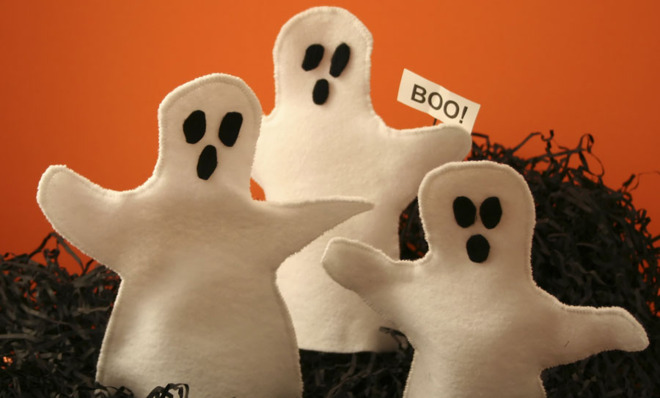Why are 'ghost,' 'ghastly,' and ' ghoul' spelled with 'gh'?
It's a really strange way for an English word to start


A free daily email with the biggest news stories of the day – and the best features from TheWeek.com
You are now subscribed
Your newsletter sign-up was successful
When you make a purchase through links on our site, we may earn a commission
"Gh" is a strange way for an English word to start. There are only a handful of commonly used words that begin with this spelling. Beyond the spirit cluster of ghost, ghastly and ghoul, we have borrowed words like ghetto, gherkin, and ghee, some place names like Ghana and Ghent, and that's about it.
"Ghoul" was borrowed into English in the 1700s from the Arabic ghul, but at first without the "h," as "goul" or "goule." It was later lured over to the "gh" group by its semantic similarity to "ghost."
The Week
Escape your echo chamber. Get the facts behind the news, plus analysis from multiple perspectives.

Sign up for The Week's Free Newsletters
From our morning news briefing to a weekly Good News Newsletter, get the best of The Week delivered directly to your inbox.
From our morning news briefing to a weekly Good News Newsletter, get the best of The Week delivered directly to your inbox.
But how did ghost get its "gh"? Compared to the other "gh" words, ghost is both a lot more common and a lot older, going all the way back to Old English gást. Until the 1500s, over a few centuries of language change, it was spelled gast, gæst, gost, goste, goost, and goist. "Ghastly," from the related, Middle English gastliche, also came in "h"-free spellings until the 1500s.
We can trace the introduction of the "h" in ghost and ghastly back to William Caxton, the man who brought the printing press to England. He had established his first press in Bruges, and he brought some Flemish typesetters back with him when he returned to set up business in Westminster. David Crystal writes, in his history of English spelling, that "in Bruges they would have been used to reading manuscripts in Flemish spelling. So if a word reminded them of its Flemish counterpart, why not spell it that way? The boss wouldn't mind, as long as the words were intelligible. He had more to worry about than spelling."
The typesetters also used "gh" in their spellings of goose, goat, and girl, but those spellings never caught on. For some reason, only ghost and ghastly kept the "h." Maybe because the words looked spookier that way. Indeed, a story about the ghost of a "ghoos ghoot gherle" sounds downright terrifying. Thank ghoodness those spellings have ghone.
A free daily email with the biggest news stories of the day – and the best features from TheWeek.com
Arika Okrent is editor-at-large at TheWeek.com and a frequent contributor to Mental Floss. She is the author of In the Land of Invented Languages, a history of the attempt to build a better language. She holds a doctorate in linguistics and a first-level certification in Klingon. Follow her on Twitter.
-
 The best music tours to book in 2026
The best music tours to book in 2026The Week Recommends Must-see live shows to catch this year from Lily Allen to Florence + The Machine
-
 Gisèle Pelicot’s ‘extraordinarily courageous’ memoir is a ‘compelling’ read
Gisèle Pelicot’s ‘extraordinarily courageous’ memoir is a ‘compelling’ readIn the Spotlight A Hymn to Life is a ‘riveting’ account of Pelicot’s ordeal and a ‘rousing feminist manifesto’
-
 The EU’s war on fast fashion
The EU’s war on fast fashionIn the Spotlight Bloc launches investigation into Shein over sale of weapons and ‘childlike’ sex dolls, alongside efforts to tax e-commerce giants and combat textile waste
